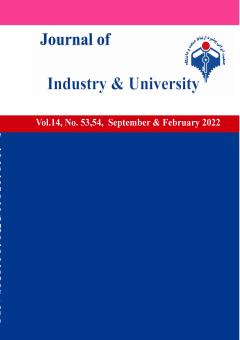The challenge of the relationship between academia and industry is an issue that experts and academics and industry officials have been addressing more and more in recent years and are looking for safe and planned solutions and ways to strengthen this relationship. The relationship between industry and academia has been discussed in the country for several decades, and the first statements of the Supreme Leader in this regard date back to 1990, but what is certain is that there has been no effective relationship between science, academia and industry; Today, more than ever, the structure of science, technology and industry in the country needs to be reviewed and interacted as much as possible, and industry stakeholders must accept the fact that, along with the university, they will be able to fully absorb technology.This is part of His Holiness's statement in a group meeting of university professors, elites and researchers: "We have talked a lot about 'beneficial science'; "That is, the science that solves the problems of the country; the solution of the problems of the country is a beneficial science, that is, it is a scientific confrontation with the various problems that exist in the country."
At first glance, perhaps the biggest problem in the communication space between industry, society and academia is the technical issue, but upon entering this space, it is seen that this is not the case in practice, and it seems that lack of information, lack of trust and lack of motivation are the three main pillars. ; Too often, our industry and society are unaware of the capacity and potential of knowledge-based companies, academic companies, and faculty members.In the current era, universities and entrepreneurs have a greater mission and social responsibility in the face of economic development, productivity in production and the creation of sustainable income, and a connection with industry and production. These basic problems led to the presentation of research in this area to be able to be effective in removing existing barriers.
One of the most important challenges in the relationship between industry and the university is the academic level of Iran's first-ranked universities, which is at the level of international knowledge, while Iran's industry is at the level of developing countries. Be
Manuscript profile


